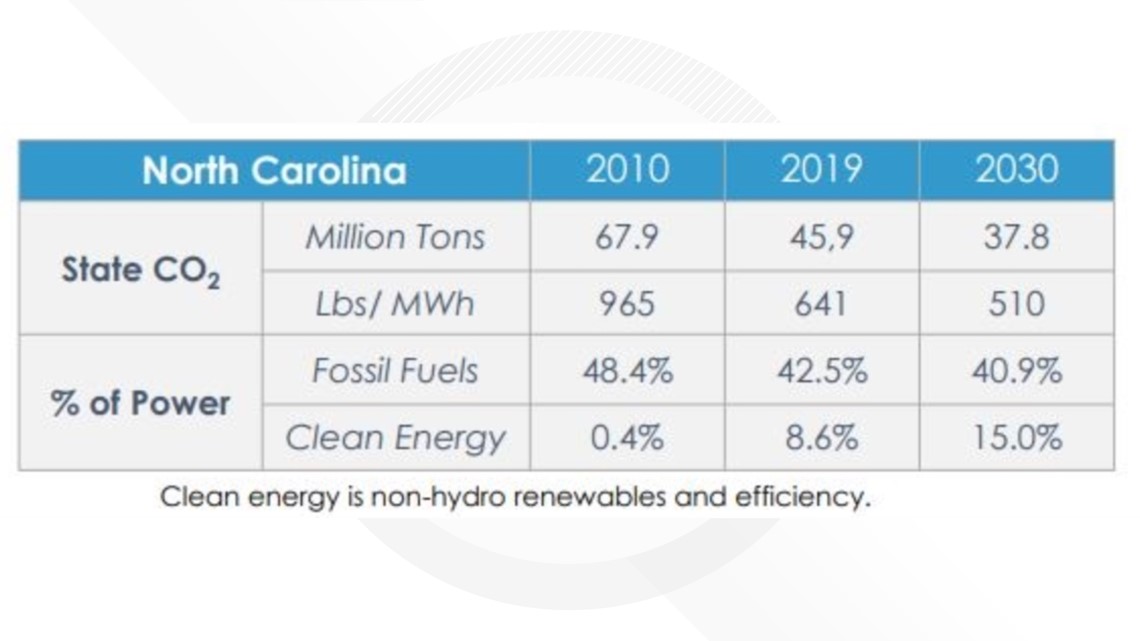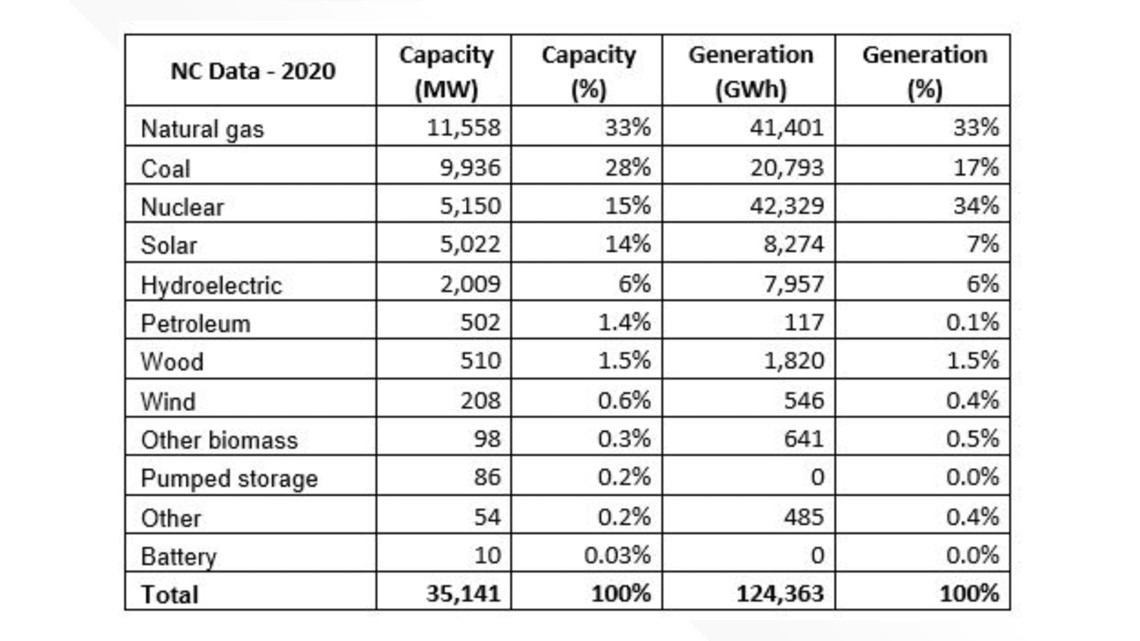CHARLOTTE, N.C. — North Carolina has relatively new legislation in place meant to help the environment. Gov. Roy Cooper signed an executive order to push the state to be carbon-neutral by 2050.
Some of that calls for companies to change how they produce electricity.
THE QUESTION
Do fossil fuels supply all of North Carolina's energy grid?
THE SOURCES
THE ANSWER
No, fossil fuels do not supply all of North Carolina's energy grid. More diverse resources help bring power to homes and businesses.
WHAT WE FOUND
First, let's define what fossil fuels are, according to the U.S. Department of Energy.
Fossil fuels include oil, coal, and natural gas.
Non-fossil fuels include solar, wind, and nuclear energy.
The Southern Alliance for Clean Energy reported as of 2019, fossil fuels power less than half of North Carolina's electric sector, as seen in the table below.


Wheeless said Duke Energy is already phasing out its coal plants in North Carolina.
"So half of the state is nuclear power, the rest of the state, you probably got to 25% for natural gas," Wheeless said, describing Duke Energy's program. "16% is coal, which is you know, we're going to be out of coal by the end of the decade. So we're actually closing those coal plants down. And then the remaining nine or 10% is basically solar power and hydro-electric."
VERIFY: Electric car battery fires are rare, but more research is being done to study the new technology
The North Carolina Utilities Commission breaks down the energy sources even more. In the table below, natural gas supplies the biggest chunk of energy to the state's grid, followed by nuclear and coal.


VERIFY is dedicated to helping the public distinguish between true and false information. The VERIFY team, with help from questions submitted by the audience, tracks the spread of stories or claims that need clarification or correction. Have something you want VERIFIED? Text us at 704-329-3600 or visit /verify.

